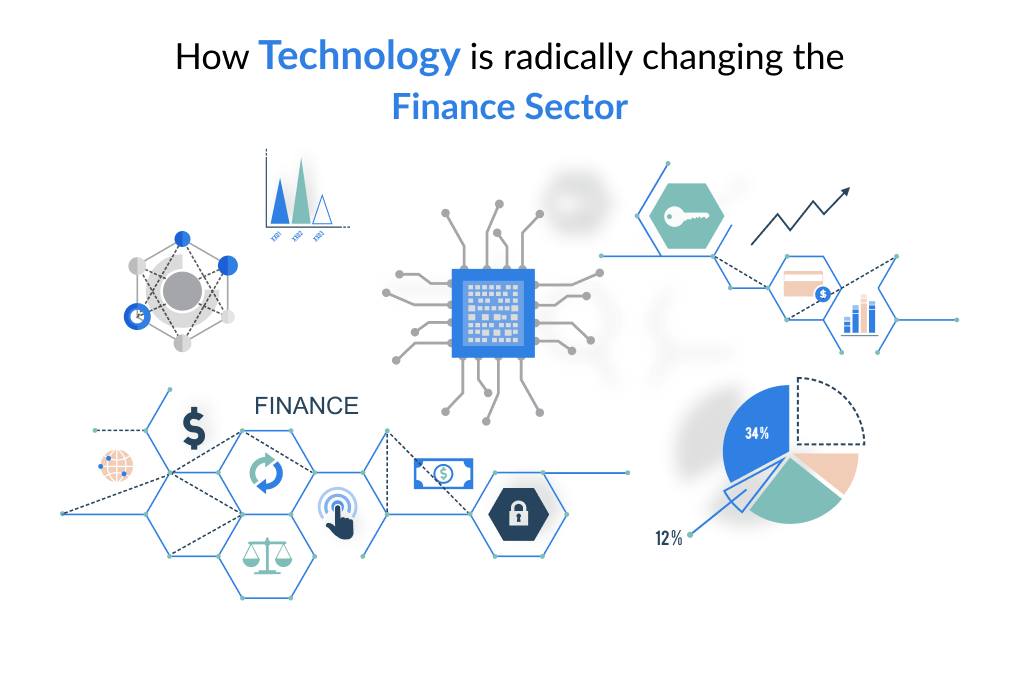Introduction
The financial industry has been around for centuries, but the rise of fintech has brought about unprecedented changes. Fintech, which stands for financial technology, refers to the use of technology to deliver financial services.
The financial industry has been around for centuries, but the rise of fintech has brought about unprecedented changes. Fintech, which stands for financial technology, refers to the use of technology to deliver financial services. This disruption has been driven by the changing consumer behavior, technological advancements, and the need for more efficient and accessible financial services.
In this blog post, we will explore the rise of fintech, its challenges, and how it is disrupting the financial industry.
The Rise of Fintech
The fintech industry has been on the rise for the past decade. The growth has been driven by several factors, including increased internet and smartphone usage, the rise of big data and artificial intelligence, and changing consumer behavior.
One of the biggest advantages of fintech is that it allows for greater financial inclusion. Traditional financial institutions have historically excluded low-income individuals and those without credit histories. Fintech has made it possible for these individuals to access financial services through mobile banking, microlending, and other innovative solutions.
Fintech has also made financial services more efficient. For example, fintech companies have streamlined the loan application process, reducing the time it takes for borrowers to receive funds. This has made it easier for businesses and individuals to access the capital they need to grow.
Fintech has also made financial services more user-friendly. Traditional banks have a reputation for being bureaucratic and difficult to navigate. Fintech companies have created interfaces that are more intuitive and user-friendly, making it easier for individuals to manage their finances.
Barriers in the Fintech Sector!

Despite the many advantages of fintech, the industry still faces several challenges. One of the biggest challenges is regulation. Fintech is a highly regulated industry, and navigating the various regulations can be difficult for startups. In some cases, fintech startups must partner with traditional financial institutions to comply with regulations.
Another challenge facing fintech is cybersecurity. Financial institutions are attractive targets for cybercriminals, and fintech companies must invest heavily in cybersecurity to protect their users' data. A single data breach can have devastating consequences for a fintech company, as users may lose trust in the company and switch to a competitor.
Fintech companies also face challenges in attracting and retaining talent. The demand for skilled workers in the tech industry is high, and fintech startups often struggle to compete with larger, more established companies for talent. Additionally, fintech startups may not have the resources to offer the same level of benefits and compensation as larger companies.
How Technology is Radically changing the Finance Sector

The rise of fintech has disrupted the financial industry in several ways. One of the most significant disruptions has been in the payments industry. Fintech companies have developed new payment methods, such as mobile wallets and peer-to-peer payments, that are more convenient and accessible than traditional payment methods.
These new payment methods have also made it easier for individuals and businesses to transact globally, breaking down traditional barriers to international commerce.
Another area where fintech has disrupted the financial industry is lending. Fintech companies have developed innovative lending models that use technology to analyze credit risk and make lending decisions. These models have made it easier for individuals and businesses to access credit, particularly those who may not have a traditional credit history.
Fintech has also disrupted the investment industry. Traditional investment firms have historically been inaccessible to many individuals due to high fees and minimum investment requirements.
Fintech companies have developed investment platforms that are more accessible and affordable, making it easier for individuals to invest and manage their portfolios.
In addition to disrupting traditional financial services, fintech is also disrupting other industries. For example, fintech is being used to streamline supply chain finance, automate insurance underwriting, and even facilitate real estate transactions.
Another area where fintech has a significant impact is in the realm of personal finance management. Fintech companies have developed platforms that allow individuals to easily manage their finances, track their spending, and set financial goals.
These platforms often use machine learning algorithms to provide personalized financial advice to users.
Overall, fintech is shaking up the financial industry by challenging traditional business models and creating new, innovative solutions to long-standing problems.
Conclusion
The rise of fintech has brought about unprecedented changes in the financial industry. Fintech has made financial services more accessible, efficient, and user-friendly, challenging traditional business models and creating new opportunities for innovation.
Fintech also faces significant challenges, including regulation, cybersecurity, and talent retention. Despite these challenges, the fintech industry is poised for continued growth as it continues to disrupt the financial industry and other industries as well.
How Remotestate's Fintech Expertise Can Help Your Business Thrive
As a software development and IT services company, Remotestate is well-equipped to help businesses navigate the fast-changing world of fintech. Our team of experts has extensive experience developing innovative fintech solutions that can help businesses stay competitive and meet the evolving needs of their customers.
Whether you are looking to streamline your financial operations, automate manual processes, or develop a cutting-edge financial product, Remotestate can help. We have experience working with a wide range of fintech platforms and technologies, and we can help you select and implement the solutions that best meet your unique business needs.
At Remotestate, we understand the challenges facing the fintech industry, including complex regulations, cybersecurity concerns, and talent retention issues. Our team can help you navigate these challenges and build solutions that are both secure and scalable, allowing you to focus on growing your business and delivering exceptional customer experiences.
In addition to our technical expertise, Remotestate is committed to providing exceptional customer service and support. We work closely with our clients to ensure that they understand every aspect of the solutions we develop, and we provide ongoing support and maintenance to ensure that these solutions continue to meet their needs over time.
In short, if you are looking to stay ahead of the curve in the world of fintech, Remotestate is the partner you need. Contact us today to learn more about how we can help your business thrive.
FAQs
What is fintech?
Fintech stands for financial technology and refers to the use of technology to deliver financial services.
How is fintech disrupting the financial industry?
Fintech is disrupting the financial industry by challenging traditional business models and creating new, innovative solutions to long-standing problems. Fintech has made financial services more accessible, efficient, and user-friendly.
What are some challenges facing the fintech industry?
Fintech faces several challenges, including regulation, cybersecurity, and talent retention. Fintech startups must navigate complex regulations and invest heavily in cybersecurity to protect user data. Additionally, the demand for skilled workers in the tech industry is high, and fintech startups may struggle to compete with larger, more established companies for talent.
How are fintech disrupting industries beyond finance?
Fintech is being used to streamline supply chain finance, automate insurance underwriting, and even facilitate real estate transactions. Additionally, fintech is having a significant impact on personal finance management, providing users with personalized financial advice and goal-setting tools.
Publication Date
2023-03-14
Category
Fintech
Author Name
Sajal Nehra


